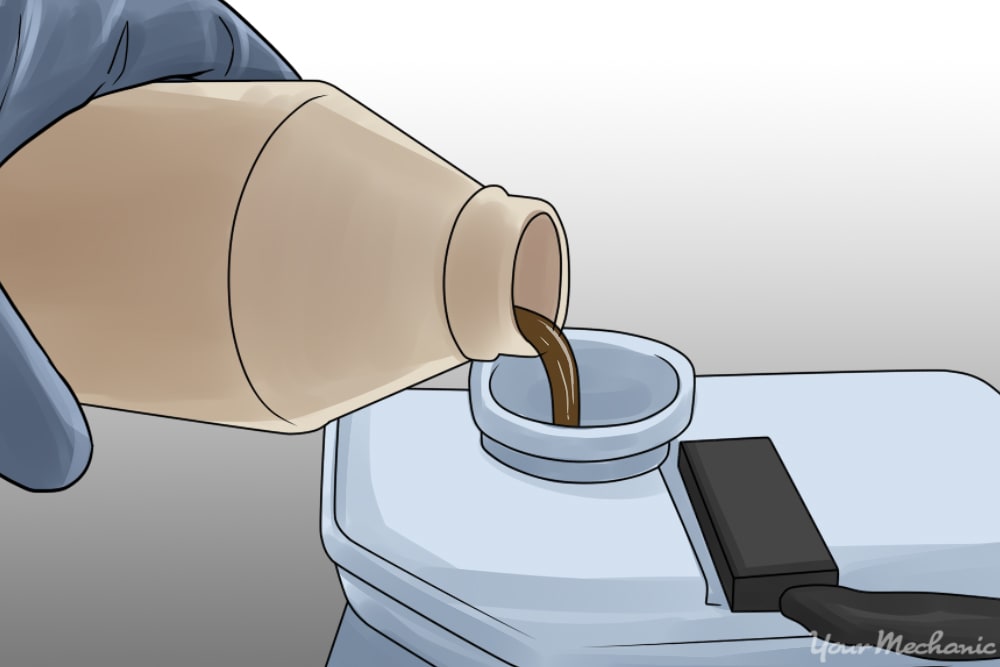

Just about every auto part is salvageable and recyclable, including its metals, plastics, and fluids. While metal and plastic vehicle components are repurposed to reduce waste, automotive fluids need proper disposal because of their toxicity.
Professional auto shops are held to high standards when it comes to disposing or recycling vehicle fluids, though the specifics vary between states and counties. The average car owner is not monitored to the same extent. However, for the sake of environmental health and even the safety of animal and human lives, car owners should practice proper automotive fluid disposal.
Every fluid in today’s cars requires special disposal or can be recycled. Regulations vary by area and fluid type. Common car fluids include engine oil, engine coolant/antifreeze, brake fluid, transmission fluid, power steering fluid, and various cleaning or waxing products. Whereas motor oil can be cleaned and reused, engine coolant requires disposal at a special facility in a process that differs greatly from transmission fluid disposal, for example. Follow these four guidelines for safely disposing of car fluids:
1. Never Dispose of Fluids by Dumping
Do not dump car fluids on the ground, into a storm drain, or into a septic tank. The toxicity of the fluids will harm the soil and contaminate water supplies, affecting animal populations and potentially humans as well.
2. Store Fluids Separately in Sealed Containers
Keep all different car fluids separate from one another — the disposal methods for specific fluids after drop-off at collection centers can vary greatly. Car fluids can be highly flammable or poisonous. Awaiting disposal, they need to be stored in tightly sealed containers kept away from children, pets, and places where they are likely to spill. The containers specific fluids come in often work well for storage after use. Make sure to leave some air space in the container in case the fluid expands.
3. Research Disposal Requirements
Depending on the type of fluid, it may need to be taken to a hazardous waste drop-off site. Look for descriptive words like “caution,” “warning,” “danger,” “poison,” or “corrosive” on a fluid container’s label to determine if it needs to be taken to such a site. Some fluids can be turned in to your local auto body shop to be properly disposed of. Contact local, state, and federal regulations and your local waste management company to learn about regulations and locations.
4. Arrange Transportation
You can either take car fluids to the appropriate drop-off location yourself or potentially hire a company to pick them up for you. If you’re transporting fluids yourself, make sure they are tightly sealed in containers to prevent spills while traveling — especially if driving to a place on winding roads. Some hazardous waste companies will come to your home to pick up dangerous materials. Be sure to see what disposal companies near you have to offer.



